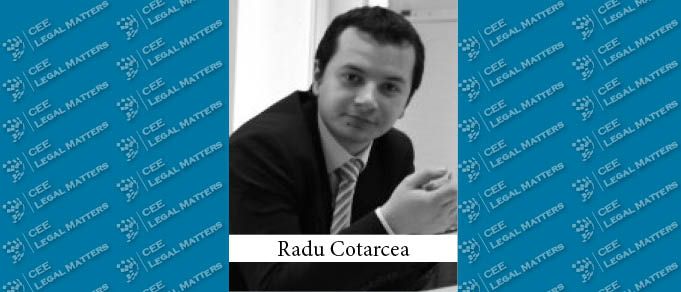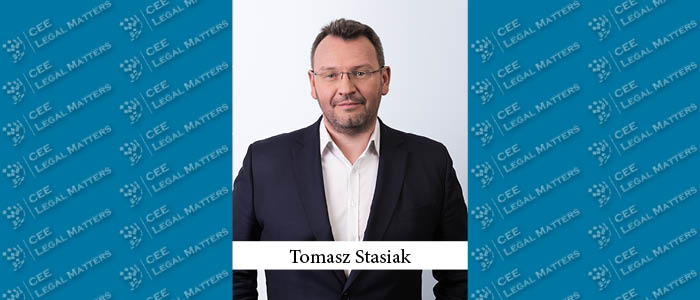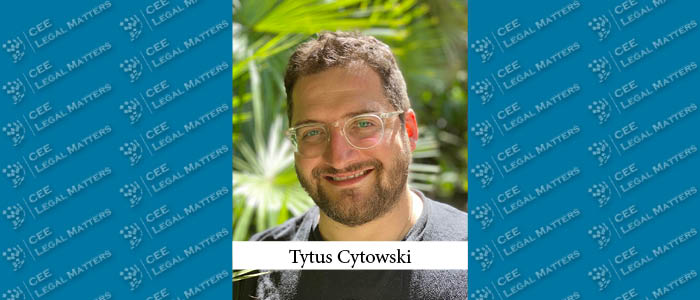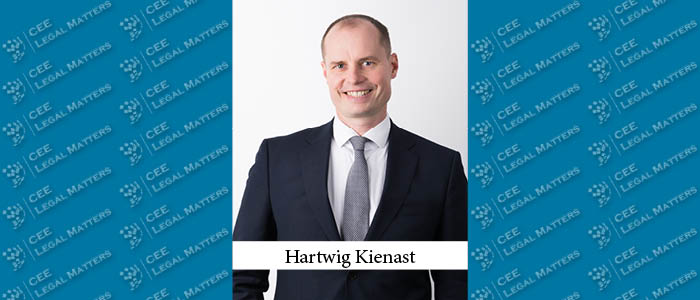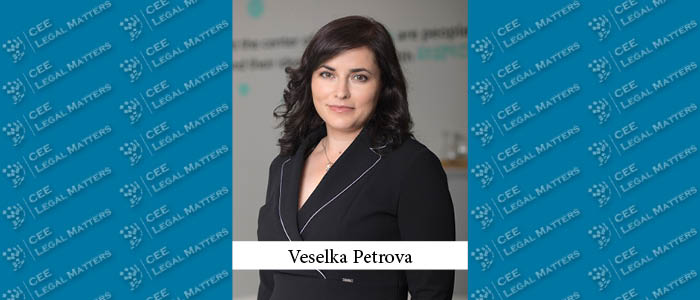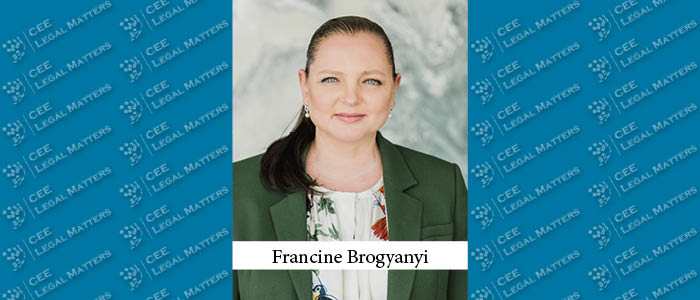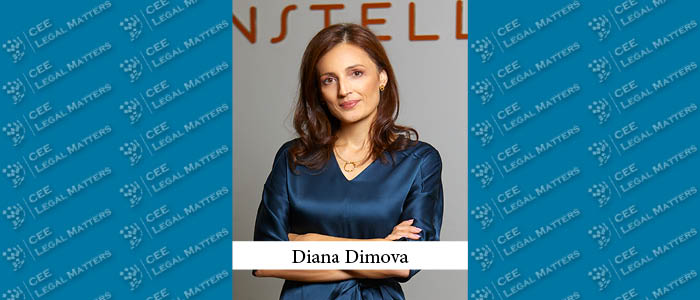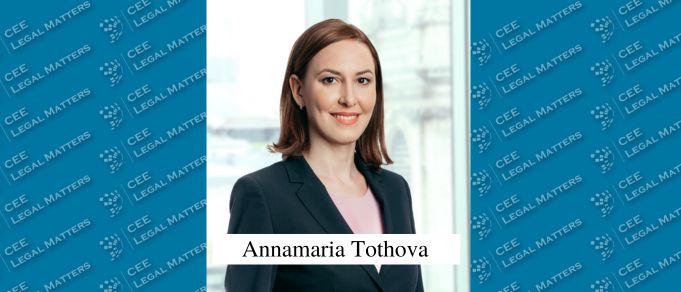No, this is not a story about some barista somewhere diligently misspelling my name (with my name, I gave up a long time on hoping for accuracy there). It’s about an actual Starbucks cup that was casually dropped and left on the ground in front of my apartment building a little while back.
Guest Editorial: Strength Through Unity – Addressing CEE Real Estate Challenges
In the nineties, young lawyers like me often felt annoyed by partners traveling thousands of kilometers to “new Europe” to explain to us basic concepts of real estate – back then it was a sign of a cultural gap between the leaders of globalization.
Keep Your Guard Up: Transforming European Defense Sectors
Across Europe, defense sectors are experiencing significant transformations and budgetary escalations, driven by a need for enhanced military readiness and modernization. Avellum Partner Andriy Romanchuk, Cobalt Partner Deividas Soloveicik, Nagy es Trocsanyi Partner Gyorgy Kiszely, and Tuca Zbarcea & Asociatii Partner Serban Paslaru take a closer look at defense spending in their respective countries.
Looking In: Tytus Cytowski of Cytowski & Partners
In our Looking In series, we talk to Partners from outside CEE who are keeping an eye on the region (and often pop up in our deal ticker) to learn how they perceive CEE markets and their evolution. For this issue, we sat down with Cytowski & Partners Managing Partner Tytus Cytowski.
Legal Tech Hub Europe: Six Years In
With legal services in a constant state of technology-driven evolution, Austria-based Legal Tech Hub Europe is trying to revolutionize the legal industry by fostering innovation and embracing the digital future. Partners from Dorda, E+H, Herbst Kinsky, and Schoenherr – four of the five firms spearheading the hub – talk about the initial set-up of the LTHE and its milestones over the last six years.
Austria’s Start-Up Promotion Act: Paradigm Shift for Start-Ups and Employee Ownership
The Austrian government has recently enacted the Start-Up Promotion Act to nurture its start-up ecosystem and enhance employee participation in corporate growth. Wolf Theiss Partner Hartwig Kienast analyses how this legislation integrates with Austria’s existing legal framework and its implications for start-ups, employees, and the broader economic landscape.
Bulgaria Steps Out of a Legislative Backlog
In September 2022, CEE Legal Matters reported on Bulgaria’s outstanding legislative packages caused by three parliamentary elections being held in the span of eight months. Nearly two years later, Hristov & Partners Partner Dragomir Stefanov, Kambourov & Partners Partner Veronika Hadjieva, Penkov, Markov & Partners Associated Partner Nikolay Voynov, Peterka & Partners Partner Plamen Peev, and Schoenherr Bulgaria Co-Head of Real Estate Elena Todorova discuss the progress made after the extended legislative hiatus.
Bulgaria’s Schengen Path
After years of preparation, Bulgaria’s integration into the Schengen area marks a significant moment, with the lifting of border controls at air and sea entry points as of March 2024. Boyanov & Co Managing Partner Borislav Boyanov, Dinova Rusev & Partners Managing Partner Ivelina Cherneva, Djingov, Gouginski, Kyutchukov & Velichkov Partner Anton Krustev, and Gugushev & Partners Senior Partner Victor Gugushev discuss Bulgaria’s pursuit of Schengen integration.
Inside Insight: Interview with Veselka Petrova of Yazaki
From her beginnings as an M&A attorney in Bulgaria to her current role as Regional Compliance Manager for Eastern Europe at Yazaki, Veselka Petrova’s career has been a testament to the power of blending legal expertise with strategic business insight.
Know Your Lawyer: Francine Brogyanyi of Dorda
An in-depth look at Francine Brogyanyi of Dorda covering her career path, education, and top projects as a lawyer as well as a few insights about her as a manager at work and as a person outside the office.
Know Your Lawyer: Diana Dimova of Kinstellar
An in-depth look at Diana Dimova of Kinstellar covering her career path, education, and top projects as a lawyer as well as a few insights about her as a manager at work and as a person outside the office.
Montenegro: Legal Insights into Investing in the Hotel Industry
In the last decade, Montenegro has focused on creating a favorable business environment, attracting renowned foreign investors and resulting in significant economic development and growth. The government has been focusing on high-level tourism, transitioning from seasonal to year-round hotels that offer luxurious stays and services.
Slovenia: Above-Standard Construction in Slovenia and ESG Requirements
The Slovenian real estate market is characterized by an excess of demand over supply, especially in the residential real estate sector, which has pushed property prices sky-high. Low interest rates on financing in recent years have led to a number of easy-profit-seeking (half-professional) investors – usually project companies building so-called “above-standard” construction.
Estonia: Challenges of Large-Scale Construction Projects in Estonia
In a compact nation like Estonia, the prominence of construction projects can swiftly transcend local interests and become matters of national interest. The escalation of public attention toward large-scale construction projects invites heightened scrutiny by different interest groups. Notably, several recent projects have become entangled in legal disputes, profoundly impacting anticipated timelines and financial forecasts. This article aims to delineate emerging patterns from recent cases and offer recommendations aimed at preventing and avoiding legal contentions.
Kosovo: An Overview of Foreigner’s Property Rights in Kosovo
The ever-growing real estate market in Kosovo shows no signs of stopping. Even amid high prices, demand for real estate keeps growing. This demand is largely driven by Kosovo’s diaspora living in the EU and other Western countries. It is also fueled by foreign nationals and foreign companies who find properties in Pristina and other major cities in Kosovo attractive as investments.
Bosnia and Herzegovina: An Overview of Real Estate Legislation
Bosnia and Herzegovina (BiH) is a country in the south-east of Europe (the so-called “Balkan region”) with an area of 51,229 square kilometers. In accordance with its political and legal structure, BiH is divided into two entities (the Federation of Bosnia and Herzegovina – FBIH – and Republika Srpska – RS) and the Brcko District (BD BIH). The real estate market is a significant part of the economic activity of BiH and is governed by a set of legal regulations which follow international standards for the protection of property rights. In the course of 2022 and 2023, there was a strong investment wave in the real estate market.
Slovakia: The Problem with Building Permits
Permitting of any projects is a long-standing problem in the Slovak Republic. In international surveys, Slovakia ranks at the bottom, as it takes an average of 300 days to permit a simple building such as a family house. This problem becomes much more acute in the case of constructions that are more complicated and require the assessment of several administrative bodies or may have a significant impact on the environment.
North Macedonia: The Growth of Real Estate Prices and the Demand for Buying and Selling Real Estate
In recent years, the real estate market in the Republic of North Macedonia, particularly in its capital city of Skopje, has witnessed significant activity. Statistics indicate a consistent trend of construction and sale of numerous residential apartments. Notably, despite the steady increase in real estate prices since 2021, there has been a notable surge in demand for residential apartment purchases. Concurrently, investor interest in constructing residential and office buildings remains robust, showing no significant signs of decline.

